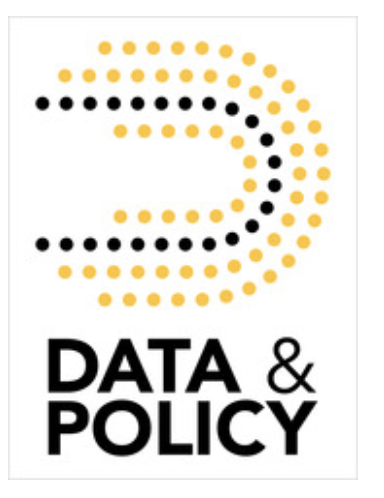
Opening editorial by Stefaan G. Verhulst, Zeynep Engin and Jon Crowcroft: “…Policy–data interactions or governance initiatives that use data have been the exception rather than the norm, isolated prototypes and trials rather than an indication of real, systemic change. There are various reasons for the generally slow uptake of data in policymaking, and several factors will have to change if the situation is to improve. ….
- Despite the number of successful prototypes and small-scale initiatives, policy makers’ understanding of data’s potential and its value proposition generally remains limited (Lutes, 2015). There is also limited appreciation of the advances data science has made the last few years. This is a major limiting factor; we cannot expect policy makers to use data if they do not recognize what data and data science can do.
- The recent (and justifiable) backlash against how certain private companies handle consumer data has had something of a reverse halo effect: There is a growing lack of trust in the way data is collected, analyzed, and used, and this often leads to a certain reluctance (or simply risk-aversion) on the part of officials and others (Engin, 2018).
- Despite several high-profile open data projects around the world, much (probably the majority) of data that could be helpful in governance remains either privately held or otherwise hidden in silos (Verhulst and Young, 2017b). There remains a shortage not only of data but, more specifically, of high-quality and relevant data.
- With few exceptions, the technical capacities of officials remain limited, and this has obviously negative ramifications for the potential use of data in governance (Giest, 2017).
- It’s not just a question of limited technical capacities. There is often a vast conceptual and values gap between the policy and technical communities (Thompson et al., 2015; Uzochukwu et al., 2016); sometimes it seems as if they speak different languages. Compounding this difference in world views is the fact that the two communities rarely interact.
- Yet, data about the use and evidence of the impact of data remain sparse. The impetus to use more data in policy making is stymied by limited scholarship and a weak evidential basis to show that data can be helpful and how. Without such evidence, data advocates are limited in their ability to make the case for more data initiatives in governance.
- Data are not only changing the way policy is developed, but they have also reopened the debate around theory- versus data-driven methods in generating scientific knowledge (Lee, 1973; Kitchin, 2014; Chivers, 2018; Dreyfuss, 2017) and thus directly questioning the evidence base to utilization and implementation of data within policy making. A number of associated challenges are being discussed, such as: (i) traceability and reproducibility of research outcomes (due to “black box processing”); (ii) the use of correlation instead of causation as the basis of analysis, biases and uncertainties present in large historical datasets that cause replication and, in some cases, amplification of human cognitive biases and imperfections; and (iii) the incorporation of existing human knowledge and domain expertise into the scientific knowledge generation processes—among many other topics (Castelvecchi, 2016; Miller and Goodchild, 2015; Obermeyer and Emanuel, 2016; Provost and Fawcett, 2013).
- Finally, we believe that there should be a sound under-pinning a new theory of what we call Policy–Data Interactions. To date, in reaction to the proliferation of data in the commercial world, theories of data management,1 privacy,2 and fairness3 have emerged. From the Human–Computer Interaction world, a manifesto of principles of Human–Data Interaction (Mortier et al., 2014) has found traction, which intends reducing the asymmetry of power present in current design considerations of systems of data about people. However, we need a consistent, symmetric approach to consideration of systems of policy and data, how they interact with one another.
All these challenges are real, and they are sticky. We are under no illusions that they will be overcome easily or quickly….
During the past four conferences, we have hosted an incredibly diverse range of dialogues and examinations by key global thought leaders, opinion leaders, practitioners, and the scientific community (Data for Policy, 2015, 2016, 2017, 2019). What became increasingly obvious was the need for a dedicated venue to deepen and sustain the conversations and deliberations beyond the limitations of an annual conference. This leads us to today and the launch of Data & Policy, which aims to confront and mitigate the barriers to greater use of data in policy making and governance.
Data & Policy is a venue for peer-reviewed research and discussion about the potential for and impact of data science on policy. Our aim is to provide a nuanced and multistranded assessment of the potential and challenges involved in using data for policy and to bridge the “two cultures” of science and humanism—as CP Snow famously described in his lecture on “Two Cultures and the Scientific Revolution” (Snow, 1959). By doing so, we also seek to bridge the two other dichotomies that limit an examination of datafication and is interaction with policy from various angles: the divide between practice and scholarship; and between private and public…
So these are our principles: scholarly, pragmatic, open-minded, interdisciplinary, focused on actionable intelligence, and, most of all, innovative in how we will share insight and pushing at the boundaries of what we already know and what already exists. We are excited to launch Data & Policy with the support of Cambridge University Press and University College London, and we’re looking for partners to help us build it as a resource for the community. If you’re reading this manifesto it means you have at least a passing interest in the subject; we hope you will be part of the conversation….(More)”.
